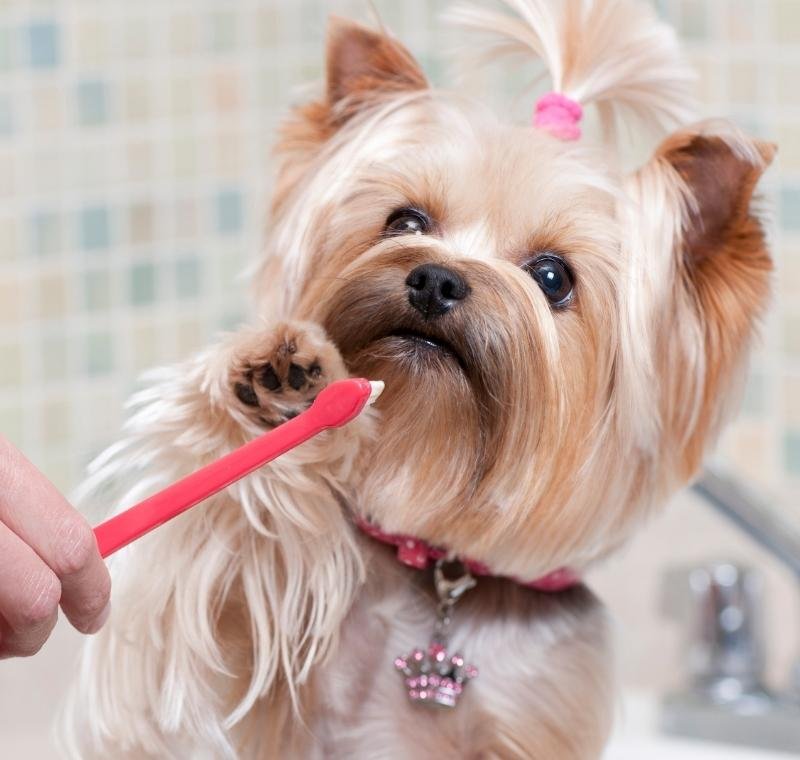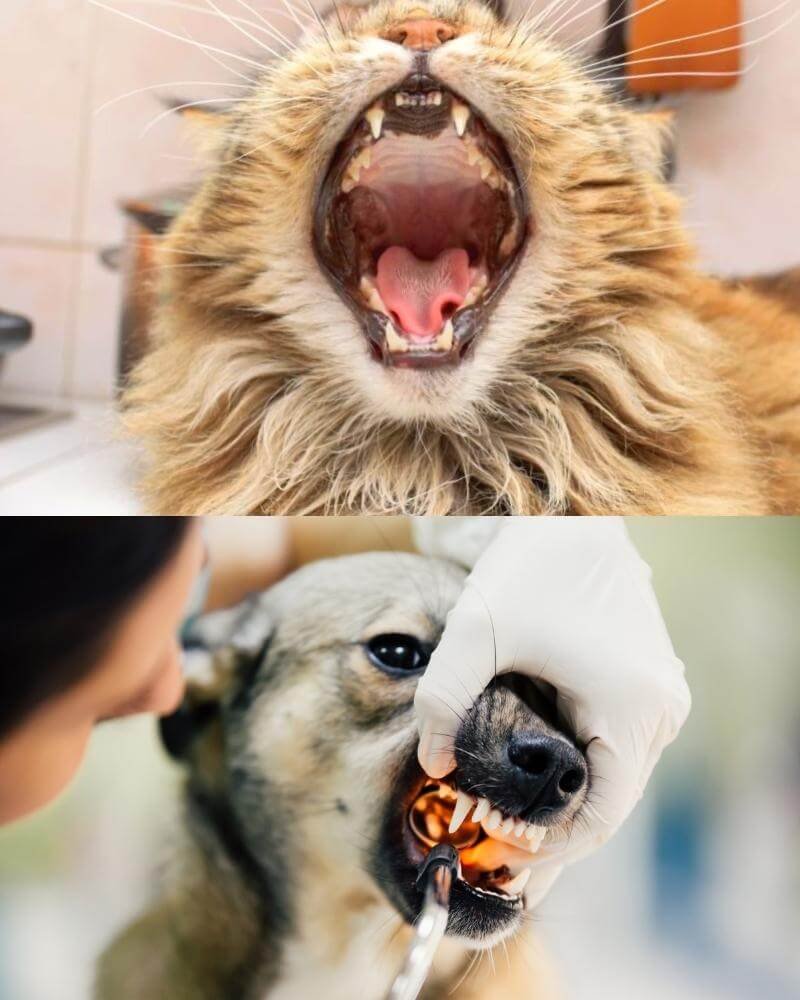
Dental Care in Pets
Every year, we vaccinate our pets in Dubai against contagious diseases. In doing so, we have achieved a major reduction of animals suffering from these diseases. Strangely enough, when it comes to dental health in our pets, veterinarians seem to be unable to convince a large group of pet owners of the importance of dental care to ensure the quality of life and longevity of their furry friends.
It has been known for a long time that dental problems as tartar build-up, gum disease and root infections can lead to major organ failure due to immune complexes set-off by infections in the oral cavity can get trapped in the capillary bed of those organs and create infection and failure of those organs, setting of a cascade of reactions leading to unwanted illness and loss of quality of life.
Since long, humans regularly go to a dentist/dental hygienist for check-ups and cleaning ensuring to halt dental decay at the earliest possible moment. We do not only do this to prevent bad breath or ensure a bright smile, but we also do this as it is common knowledge that our health is influenced negatively by poor oral hygiene/health.
So why not in our pets?
A good start can be done at home, taking care of your pets’ teeth at home can start by routinely checking their teeth, molars and oral cavity, ensuring they are used to someone handling their mouth and checking their teeth. This will allow your vet a better and less invasive approach during the yearly consult.

If this exercise can be extended by regularly massaging their gums and brushing their teeth, this will reduce the build-up of tartar, prevent gum infection and gum withdrawal, keeping deeper infections and more generalised problems at bay. Choosing a proper diet, developed to promote dental hygiene and reduce tartar formation as well as choosing healthy snacks, or treats that support gum massage or cleaning of teeth, will further enhance your efforts to promote healthy teeth in your pet. One other thing to think of when aiming to prevent dental decay via home care is by choosing your pet’s toys wisely, abrasive toys, stones, sticks or others can damage the teeth and molars, leading to chipping off-, or worse, the fracturing of teeth, opening up root canals, which leads to infection and abscess formation in the jaw.
Some breeds or individual animals are more prone to dental decay, like those with misalignment of their jaw (underbite, overbite, other) or poor positioning of teeth and molars due to crowding (brachycephalic breeds are a good example). In those cases, home care might not be sufficient. Teething in young animals can cause problems too, not all pets’ teething process runs smoothly, some juvenile teeth do not get expelled properly and cause the mature tooth to position itself differently, leading to malocclusion, fistula formation, fractured tooth pain and others. Early detection can help prevent worse from happening as it allows early intervention and ensures that with regular follow up the problem(s) can be halted or even better, overcome.
If your pet is trained well your vet can ensure to check the oral cavity meticulously during your pets consult. Sometimes, unfortunately, this cannot be done due to the pet strongly resisting this check-up, in which case an anaesthetic is needed to do a full check-up of the oral cavity. This more intrusive examination is however often delayed till actual problems have come up.
In our clinic we offer:
- Training and guidance of pet dental care at home, including how to open and inspect the oral cavity and all its elements at home routinely, brushing teeth and massaging gums
- A variety of dental care products
- Food treats, and toys advise
- Dental inspection and X-ray whilst animal is under anaesthesia for another procedure
- Mapping of your pet’s dental cavity and elements in place as well as the interpretation at that moment of the health status of those elements and gums (grading scale)
This way we create a baseline that we can compare to the status at later moments of your pet’s life, which we can use to advise you further and plan thorough dental clean in a responsible and economic way.
Unfortunately, dental cleaning, extractions or surgical procedures in the oral cavity cannot be done whilst other surgical procedures are taking place as this would negatively influence the outcome of that surgery and your pet’s health status, not even for routine surgery.
Concluding
- pet dental and oral care starts at home
- routine examination training
- brushing teeth, massaging gums
- wise choice of food, treats and toys
- trained pets are easy to examine
- use (unexpected anaesthesia) wisely to ensure you get the most information and update your pet’s record (dental map) with this
- do not postpone dental care till problems start showing in the oral cavity as the real problem is the effect poor dental hygiene has on the full body
Written by: Dr. Ellen Kruijning, ABVC Founding Partner and Veterinarian
